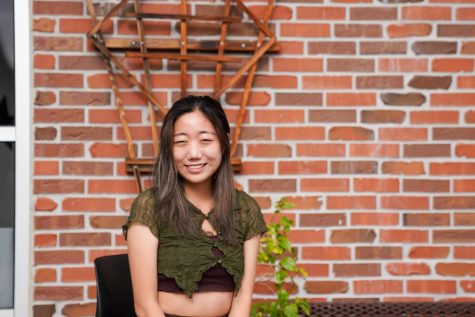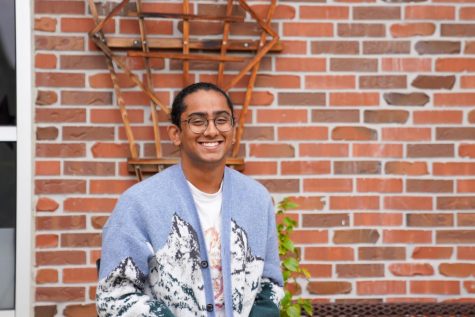Ideological distance
How family member philosophies define their interfamilial relationships
December 20, 2022
Even though she had previously taught non-binary and LGBTQ students, English teacher and AVID coordinator Lynn Rose recalls feeling unprepared to deal with her child coming out as non-binary. While being generally open to the idea, Rose states that a combination of educational reading material and her child’s willingness to show Rose levity in her learning helped her acclimate to her child’s new identity.
“As a parent, you’re raising your kids and you’re like, ‘This is what we believe,’” Rose said. “And I think as adults, sometimes we get kind of stuck in our own lives, ideas and ideologies. Now that I’m learning more from [my kids’] generation, I think it does eventually end up sort of shaping the way I look at [issues].”
Being on the other side, senior Ananya Dev recalls dealing with significant pushback about her new identity after coming out to her parents when she was thirteen. As questions about her developing identity came to the forefront of their disagreements, Dev aimed to bridge the ideological gap between her and her parents’ beliefs through various PowerPoint presentations and reading material on the experiences of being part of the LGBTQ community. While her parents still struggle with coming to terms with her identity, Dev finds that these methods have helped them shorten their ideological boundaries.
“Initially, my parents would not really want to touch on conversations [about sexuality], which are really important to me,” Dev said. “And that would [cause us to] drift apart at first. But again, as they warm up to it, it becomes a point of discussion for us. It becomes something that when we sit down to eat dinner, or when we’re all just free [for] a moment, we can discuss and really learn to see things from each other’s perspectives.”
According to Rose, parents raise their children to fit their ideals, including behaviors, habits, identity and politics. However, as kids grow up, they begin to interact with their outside environment more, which can cause them to deviate from their initial ideological standpoints. Even if parents don’t actively shape their children’s behaviors, Rose states that subconscious habits still do.
“I think in general, parents have a huge role in shaping their children, whether we think we are influencing them in that way or not,” Rose said. “Because they’re growing up in the household, they’re at the dinner table listening to the political conversations that are happening and they’re hearing the same news that we’re listening to. So I think that indirectly shapes them whether they realize that we’re [spreading] those ideals or not.”
Physics teacher Jim Birdsong, however, sees ideological differences within his family purely through politics. Raised in a rural town, physics teacher Jim Birdsong started expanding his political beliefs and worldview when he went to college in Los Angeles. There, Birdsong “changed [his] universe,” meeting a variety of personalities and learning from a diverse environment that allowed him to break down his assumptions and prejudices.
Due to his mom and sister having significantly more conservative beliefs, Birdsong recalls clashing with them over various political issues such as the 2020 election and contentious reforms, heated up especially by modern day polarization and his emphasis on using data and fact-checked sources. However, unlike Dev, avoiding political discussions with them proved to be effective in maintaining a healthy emotional connection with his family.
“‘Stop trying to beat a dead horse,’ I suppose is the stupid saying,” Birdsong said. “There’s nothing I [can] say that would make them change and there’s absolutely nothing they can say to make me change.”
Dev continues to work towards acceptance from her parents, stating that breaking down these prejudices with her parents is necessary. Since no religious restrictions are preventing them from accepting her new identity, she believes that her parents can gradually close their ideological differences. Dev also states that these exchanges require empathy on both sides for there to be a significant change.
“Sometimes parents, even though they’re older than us and have been exposed to a lot more, [might be unable] to have maturity with a certain topic and not be able to be open to different things,” Dev said. “It’s not necessarily coming from a place of hate, it’s coming from a place of a different understanding. To accept that and understand that and be able to internalize that [our ideologies stem from different backgrounds] really shifted the way that these differences affected our relationship.”
Brushing past the conflict, both Dev and Rose see the effect of parental conflict on ideologies — they find these arguments helped form deeper connections between their family and helped them become more open and caring for one another’s ideals. Rose says, above all else, a parent should learn acceptance and be able to be there for their children.
“You have to accept your kids for who they are,” Rose said. “Whether it’s what college or major they’re choosing or if it’s their gender, their sexuality or their political beliefs, you just have to love them because ideological differences are not a reason to cast anybody away.”














